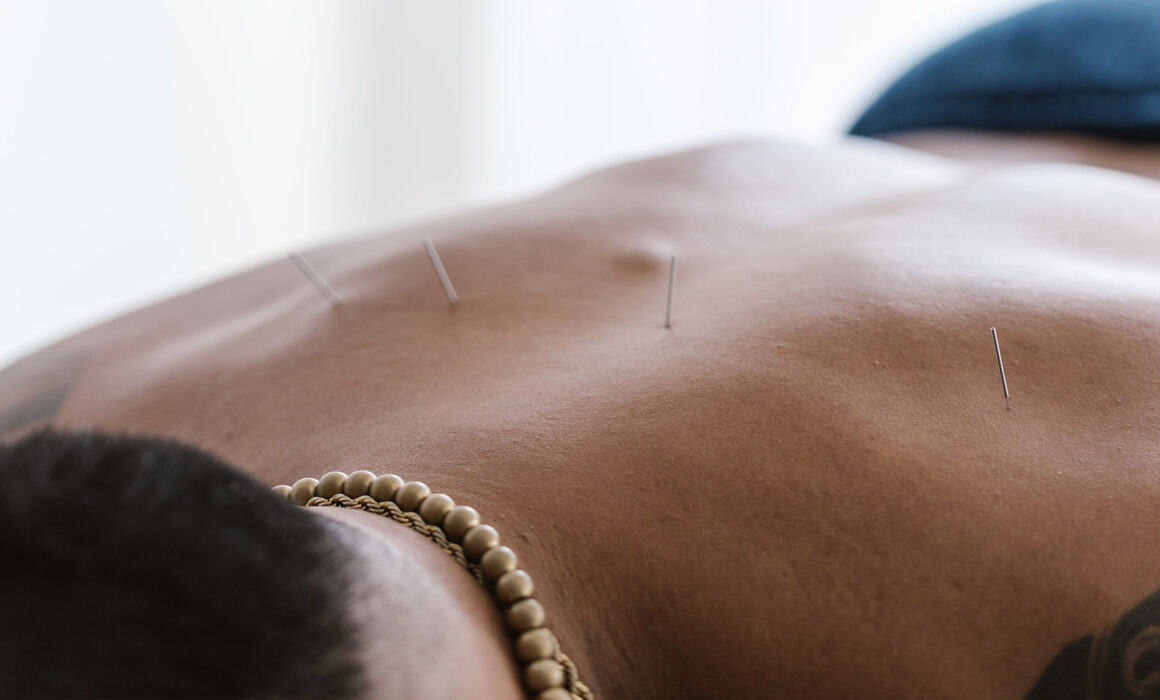Acupuncture
Acupuncture is a traditional Chinese medicine (TCM) practice that involves inserting thin needles into specific points on the body to stimulate energy flow, known as “qi” or “chi.” The underlying philosophy of acupuncture is based on the concept of balancing the body’s vital energy to promote overall health and well-being.
Here’s a breakdown of how acupuncture works:
-
Meridian System: In traditional Chinese medicine, the body is believed to have a network of channels called meridians through which qi flows. These meridians are associated with different organs and functions in the body. Acupuncturists identify specific points along these meridians where the flow of qi may be blocked or unbalanced.
-
Needle Insertion: Acupuncturists use extremely thin, sterile needles and insert them into specific acupuncture points on the body. These points may be near the surface of the skin or deeper within the muscle tissue, depending on the condition being treated.
-
Qi Stimulation: The insertion of needles stimulates the flow of qi along the meridians, helping to restore balance and harmony within the body. Traditional Chinese medicine suggests that when qi is flowing smoothly, the body is in a state of health, whereas blockages or imbalances can lead to illness or discomfort.
-
Regulation of Energy Flow: From a Western perspective, acupuncture is believed to have an impact on the nervous system. The insertion of needles may trigger the release of endorphins (natural painkillers) and stimulate nerves, influencing the perception of pain. Additionally, acupuncture may affect the autonomic nervous system, which plays a role in regulating bodily functions such as digestion, immune response, and cardiovascular activity.
-
Holistic Approach: Acupuncture is often used as part of a holistic approach to healthcare. Practitioners consider not only the specific symptoms but also the individual’s overall health, lifestyle, and emotional well-being. This holistic perspective aligns with the traditional Chinese medicine concept of treating the whole person rather than isolated symptoms.
Acupuncture may help with:
PAIN
- Range of Motion
- Body Restrictions
- Musculoskeletal Pain
- Migraines
- Postoperative Pain
- Sciatica Pain
- Fibromyalgia
- Sprains
- Tennis Elbow
FEMALE/HORMONES
- Infertility
- Morning Sickness
- Hot Flashes
- Night Sweats
- Sexual Dysfunction
BALANCE
- Vertigo
- Dizziness
- Stroke
DIGESTION
- Acid Reflux
- Stomach Ulcer
- IBS
EMOTIONAL
- Anxiety
- Depression
- Panic Attacks
- PTSD
- Emotional Disorders
CHRONIC
- Allergies
- Sinusitis
- Asthma
- Chronic Fatigue
- Mental Fog
- Cold & Flu Symptoms (lasts > 2weeks)
